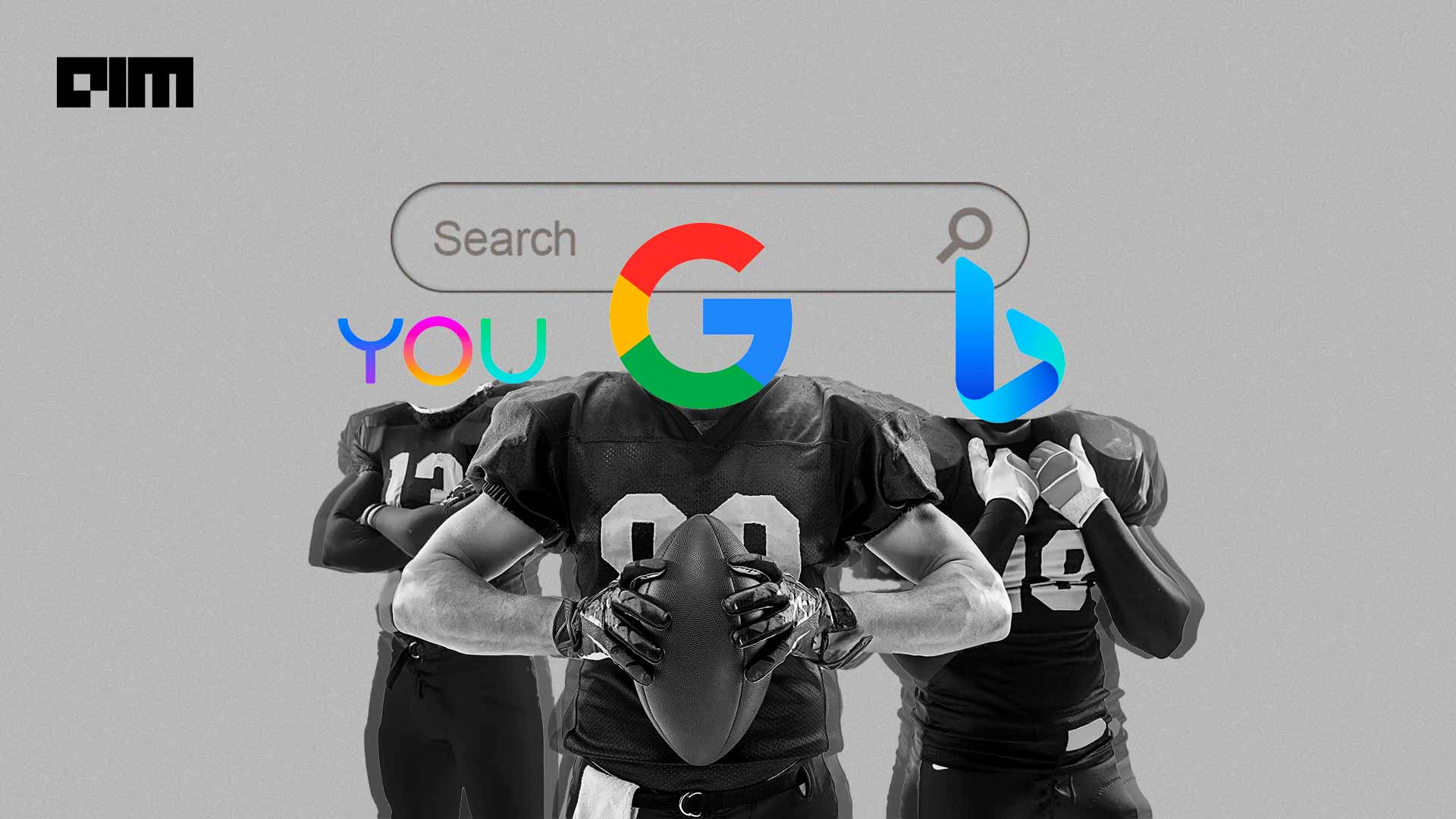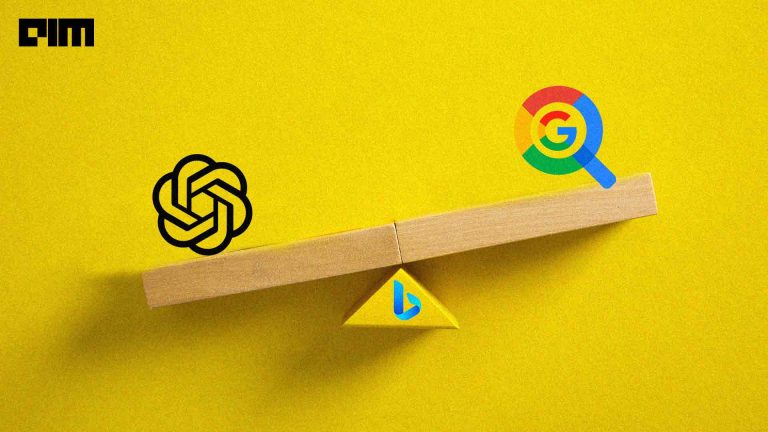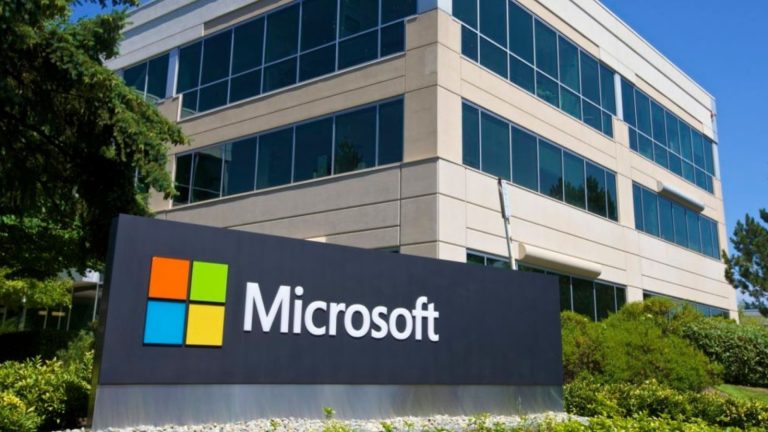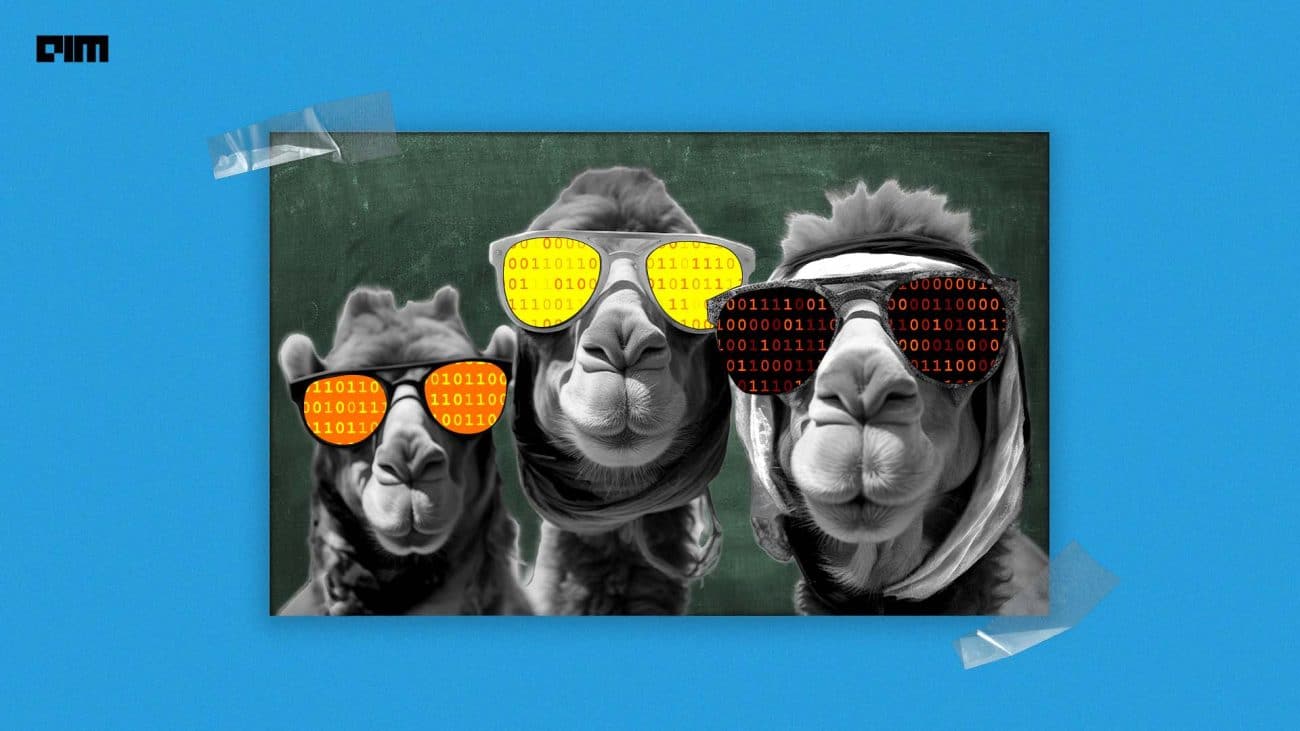|
Listen to this story
|
Back in the 1990s, the search engine category was a hot space. Yahoo, Netscape, AOL, Ask Jeeves, AltaVista, Google search, MSN and others were vying to capture the dominant position. With time, they all fizzled out.
Post 2000 was the era of Google Search, the undisputed winner of the space until quite recently.
The tide is turning and the crown of Google Search is under threat. Microsoft, who has been trying its luck in the search category for about 25 years now, has drawn the sword and thrown away the scabbard to fight the unfinished battle.
Microsoft’s Unfulfilled Dream
Earlier this week, when Microsoft held a surprise event, it was all centred around Bing. It was short and crisp with no mistakes and introduced an AI-powered Bing search and Edge web browser. It is built on a new discrete LLM model, which Microsoft claimed to be “much stronger” than ChatGPT and GPT-3.5 combined.
Currently, Microsoft’s Bing is a distant second in the search engine category with a market share of only 9%. Bing had about 5.6%, or $11.59 billion, of Microsoft’s total revenue of $204 billion in 2022.
However, Microsoft—with its latest breakthrough in AI—has positioned itself as a powerful competitor to Google’s dominant hold on the search engine market.
Just as Nadella said, “It’s a new day for search—in fact a race starts today in terms of what you can expect. And we’re going to move, we’re going to move fast.”
Microsoft has its eye on the engine throne and is finally ready to disrupt Google’s reign.
The ‘Windows’ maker is aware of the fact that distribution is key to success, unlike Google who claims to focus on the quality of its search results.
Google asserts that its internal search quality metrics outperforms Bing. But if Google was truly confident about its search’s quality, it would not pay Apple a staggering $15 billion annually to be the default search engine on IOS devices—a sum that far exceeds Bing’s entire revenue.
On the other hand, Microsoft is strategically playing its cards with billion-dollar partnerships, especially the one with OpenAI. Even computer vision genius Andrej Karpathy, who Microsoft chief touts as a poster child amidst back and forth applauds, is now on board to fuel Nadella’s dreams.
Also read: Three’s a Crowd: ChatGPT vs Bard vs Ernie Bot
Bing’s Distribution Strategy
Accessing the new beta of Bing requires users to download Microsoft Edge and set Bing as their default search engine to evade the waitlist. Bing knows the importance of easy user accessibility, as the waitlist for the new beta version can cause potential users to lose interest.
Recognising the urgent need for a more sustainable monetisation method, Microsoft is focussed on growing the number of Bing users, rather than relying solely on subscription fees.
Additionally, Bing is an important element of Microsoft’s massive $10 billion advertising empire. It has recently entered into a strategic agreement with OTT platform Netflix to provide the tech and sales for its new ad-supported tier.
The revamped search engine is an important part of Microsoft’s ambitious plan to double its ad income from $10 billion to $20 billion annually, as it was announced last year. This collaboration, combined with Bing’s already established presence in the market, can only work towards its favour.
Google’s Effort to Save the Share
At Google’s recent ‘Live in Paris’ event, it revealed a slew of updates like the addition of AI-powered chatbot ‘Bard’ to its search. Other announcements were updates such as Google Lens will soon be able to search for objects in photos and videos across websites and apps, over 24 new languages have been added to Translate, and Maps can now give a more ‘Immersive View’ with AR-based ‘Search with Live View’ and ‘Indoor Live View’. The company is also working on AI-powered art and culture tools and plans to hire more developers to advance Generative AI.
Google Seems Nervous
Unfortunately, the latest event from the tech giant was plagued with mishaps, especially with the biggest blunder being Bard’s incorrect response to questions about new discoveries from the James Webb Space Telescope, further tarnishing the company’s reputation and leaving a blemish on what was supposed to be a celebration.
From an incorrect announcement of Google Search’s anniversary by VP Prabhakar Raghavan at the very beginning to a misplaced phone leading to no demo of Google Lens, the presenters seemed underprepared and their speeches were vaguely scripted. Despite launching upgraded AR features, the overall impression was that of a lacklustre presentation which failed to live up to the hype around it.
The nightmare of an event turned to be a costly setback, with the company losing over $100 billion, as stocks nosedived by nearly 8% right after the event.
Birth of AI-Backed Search Engines
But Microsoft is not the first to incorporate AI in search engines. Neither is Google Search.
The title of launching the first AI-advanced web engine goes to former Salesforce CEO Marc Beniof for You.com. The privacy-focused search engine provides ad-free personalised summaries to its users. It uses Microsoft Bing for more specific searches and Google for more general results. In addition, You.com has released ‘YouChat’, a GPT-3.5-based chatbot.
As the AI industry continues to expand, we also see the emergence of exciting new players such as Perplexity AI and Neeva AI joining the ranks. They bring impressive potential to the table, worthy of challenging the big players of the industry.
The Road Ahead
The next few years will be a testament to the power of the AI-driven search engines as the stage is set for a showdown where the big techs will unfold their latest developments. It will be interesting to see whether the future of technology will be shaped by the giant players alone or will emerging companies like You.com be able to make their mark.
Also read: Data Science Hiring Process at McAfee



















































































